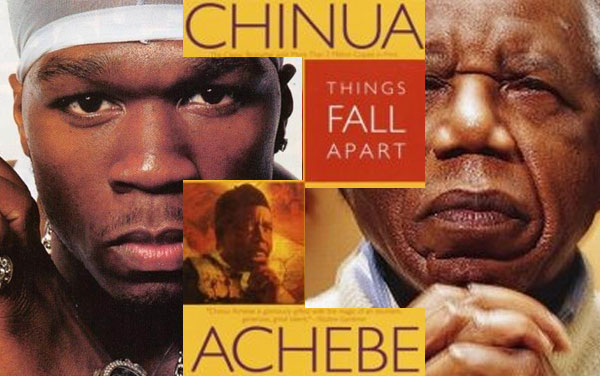
My university years were characterized by my internal struggle to find myself. Who knew that choosing courses was more than just ‘getting’ an education and a good job? This internal struggle was caused by a yearning to learn more about myself and my culture.
I remember this ‘white’ girl talking to a classmate about Africa and African development and most of the things she spoke of were unknown to me. I remember sitting there looking at her in amusement then a sudden sense of guilt came over me. I started to question why I, a person – while not directly African but visibly African by orijin, did not possess the knowledge about my ancestral homeland; yet a ‘white’ person, who visibly looks more far removed from African than myself, knew so much more about the continent than I did? (I should clarify that I recognize my ignorance in having such a myopic view of this girl as there are ‘white’ Africans and that this person by all accounts could have been ‘more’ African than me- a person whose personal and parental roots are in the Caribbean.)
Despite my noted ignorance, I decided to embark on a path to learn about my roots and culture. This then propelled me to sign up for an African literature course where the professor, who also happened to be ‘white’, enabled me to not only have a better understanding of Africa and it’s culture, but also fostered a love of African life and culture. On the first day, the professor gave us the course syllabus and cautioned us to promptly make our way to the bookstore as the first novel on the list, Things fall Apart by Chinua Achebe, was to be read by the next class. Usually, I never ran to the book store the first day, let alone the first couple weeks of classes. It was too congested, the line-ups to cash out books were too long, plus like Adele said, “I have a fickle heart” and this meant that I often changed my mind and courses. However, ‘me been dey pan a mission’ and wanted to have that same and even higher level of knowledge about the ‘motherland’ as the aforementioned girl.
The bookstore was too packed so I decided to go online and check to see if they would have it. To my surprise, the book was everywhere! How could it be? A book about Africa by an African novelist described as a ‘classic’? Chinua Achebe is revered as “the father of modern African literature”? I felt unapprised, ignorant, uneducated, unworldly and all the other superlatives one can think of to describe my level of ignorance. After getting over this initial shock, I ordered the book and it was received within a couple of days. The book was described online as “unsentimental rendering of Nigerian tribal life before and after the coming of colonialism.” It closes by declaring that “Things Fall Apart packs a powerful punch as Achebe holds up the ruin of one proud man to stand for the destruction of an entire culture.”
With all of the reviews I read in mind, I had high hopes for the book. For once in my university life I was eager more about Africa and its cultures. After initially reading the book, I was in awe. It lived up to my expectations and more! Although it is considered to be ‘fiction,’ the book still managed to shed light upon Nigerian life, society and culture. It made me want to research and learn more about Nigerian culture and traditions and the impact of colonialism on life.
Given the impact this book had on me as a newcomer to African literature, it comes as no surprise that Things Fall Apart is taught in curriculums all over the world. It is a classic that should be cherished and held in the highest esteem alongside other literary classics such as The Great Gatsby by F. Scott Fitzgerald, War and Peace by Tolstoy and others. Thus, when it was recently revealed that multi-platinum selling rapper, actor and entrepreneur 50 Cent tried release a film about an American football player diagnosed with cancer titled ‘Things Fall Apart,’ I could not help but question his level of knowledge about importance and significance of the modern classic book to Nigerian and general African life, history and literature. Does he not realize that selling the rights to the title of this novel is akin to selling an important part of African history?
While 50 Cent is endowed with millions of dollars, thereby making almost everything materially possible available to him, he recently learned that some things, regardless of money and stature are priceless. When he approached the ‘father of African literature’ and offered him $1 million in exchange for rights to the title, Achebe’s legal team responded by making 50 Cent aware of the fact that “The novel with the said title was initially produced in 1958 (that is 17 years before rapper 50 Cent was born),” and that the novel was “listed as the most-read book in modern African literature, and won’t be sold for even $1 billion.”
50 Cent is probably not used to not having what he wants and does not understand Achebe’s strong defensive response to his request. However, maybe if he read the book, embarked on a mission to learn more about his ancestral history and culture and recognize the historical and cultural significance of this novel, he would reconsider his decision to ask for rights to the title in the first place.
Latest posts by Nekita (see all)
- Before Rihanna there was Grace Jones - December 27, 2014
- Marimba: Expression of Freedom, yet my Afro-Ecuadorians… - December 25, 2014
- Who Makes Claim to Being the Reggae Capital of the World? - December 24, 2014



